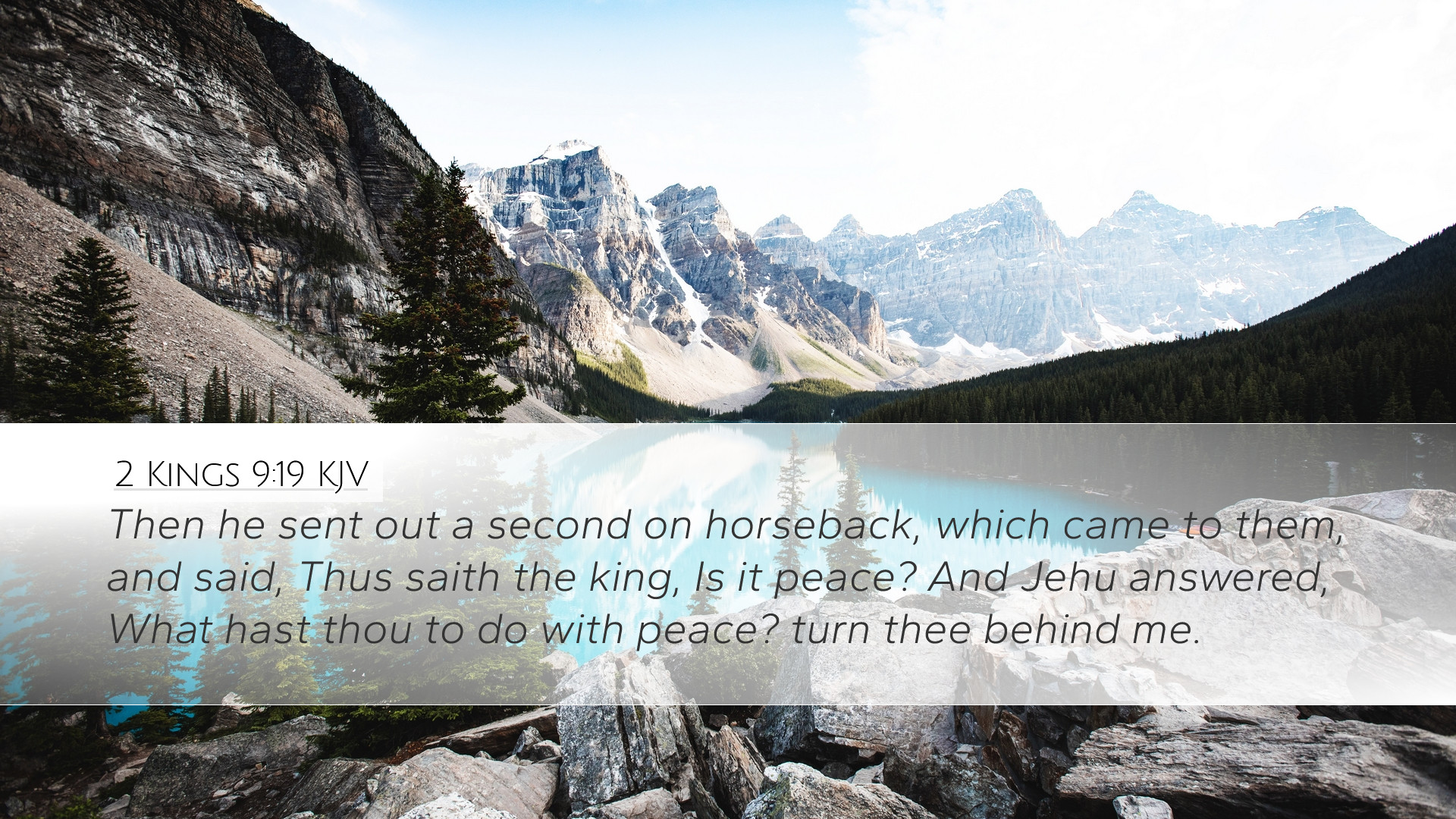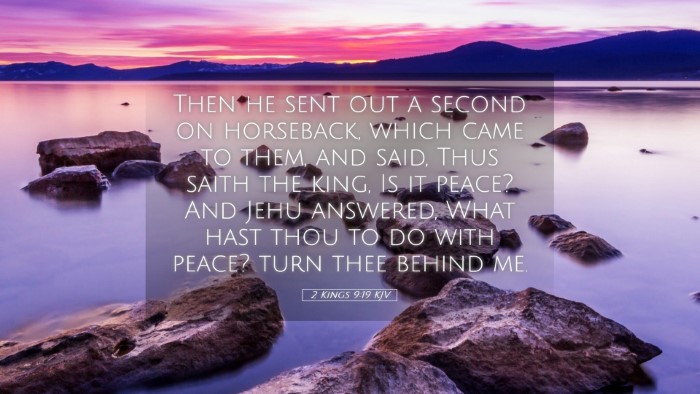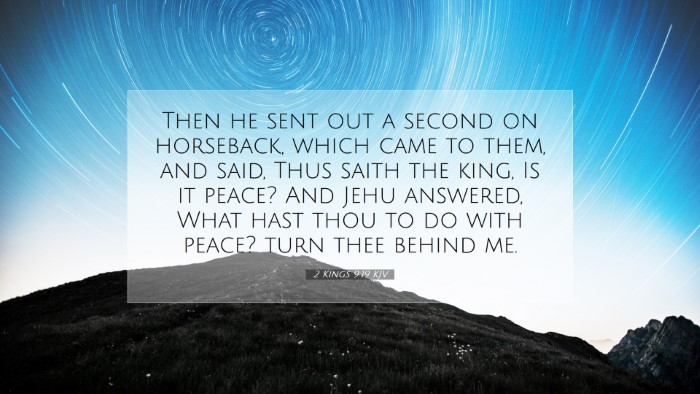Commentary on 2 Kings 9:19
Text of the Verse: "Then Jehu the son of Jehoshaphat, the son of Nimshi, conspired against Joram. Now Joram was defending Ramoth Gilead, he and all Israel, against Hazael king of Syria."
Overview
This verse marks a pivotal moment in the narrative of the kings of Israel. It introduces Jehu, who is designated by God as the instrument of judgment against the house of Ahab. The context requires an understanding of the political and spiritual landscape at the time, which was steeped in idolatry and conflict.
Contextual Background
The historical background of Israel during this time is critical. Under Joram, Israel was engaged in continual warfare against external threats, particularly the incursions from Syria. Joram’s lineage was marked by significant challenges, including the influence of his parents, Ahab and Jezebel, who were notorious for promoting Baal worship and persecuting the prophets of Yahweh.
Jehu's Introduction
Jehu is introduced as a key player destined to bring about change. His ancestry is noted—son of Jehoshaphat, indicating a lineage that, while initially righteous, was now corrupted. The verse serves to signify God’s sovereign choice of Jehu, setting the stage for his rise.
Commentary Insights
Matthew Henry's Commentary
Henry draws attention to the providential hand of God in the appointing of leaders. He emphasizes that despite the chaotic landscape of politics and religion, God is still in control. Jehu's background is discussed, highlighting his fervent personality and zealous nature, which would be essential for the task ahead of him in purging Israel of its idolatrous practices.
Albert Barnes' Notes
Barnes meticulously breaks down the significance of Jehu's conspiracy. He notes that Jehu's actions were not merely politically motivated but were a fulfillment of God's prophecy against Ahab's house. The defense of Ramoth Gilead is significant as it illustrates the ongoing conflict Israel faced and foreshadows Jehu’s role within that context.
Adam Clarke's Commentary
Clarke offers a detailed exploration of the names and places mentioned in the verse. He explains the implications of conspiracy, noting that this was a necessary step to bring about the divine judgment that was foretold. The defensive efforts of Joram are discussed, illustrating the precarious position of Israel amid external threats, while also drawing attention to the spiritual failure of its leaders.
Theological Implications
This verse serves as a reminder of God's sovereignty in appointing leaders for His purposes. It reflects the theological concepts of divine election and judgment. Jehu's role as an agent of retribution against Ahab’s sinful legacy underscores the theme of God’s justice.
- God’s Sovereignty: The selection of Jehu illustrates that God guides history according to His will.
- Judgment and Justice: The narrative highlights the seriousness of idolatry and its consequences.
- Leadership Accountability: The failure of Joram and his predecessors shows the high cost of leading God's people astray.
Lessons for Modern Believers
In examining this passage, modern believers can draw several lessons applicable to their spiritual lives today:
- Spiritual Vigilance: The warning against complacency in faith is clear. Believers must remain vigilant against influences that seek to dilute their devotion to God.
- Role of Leadership: The call for righteous leadership within the church is emphasized. Leaders must be chosen who will steer congregations toward God’s truth.
- Trust in God’s Plan: Despite current events or personal struggles, God is working His purposes out, as seen in Jehu’s rise.
Conclusion
2 Kings 9:19 serves as a critical junction in Israel’s history, emphasizing the themes of divine providence, judgment, and the consequences of leadership. The insights from various public domain commentaries provide a rich tapestry from which modern readers can glean theological and practical wisdom. It is essential to observe the unfolding of God's plans through Jehu’s actions, remaining mindful of the spiritual implications that reverberate through time.


